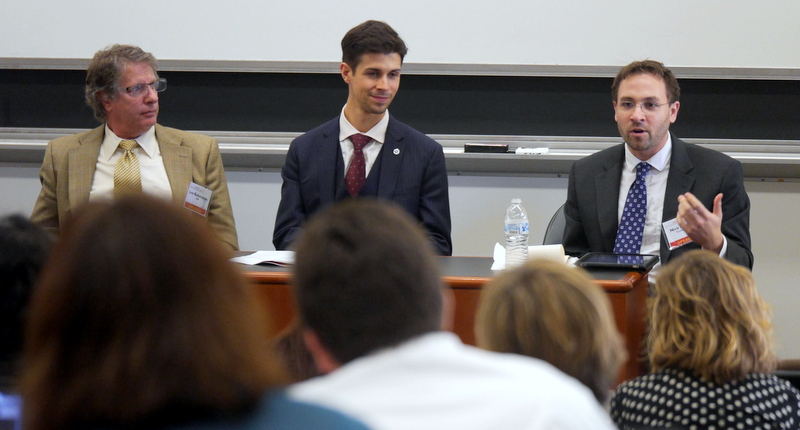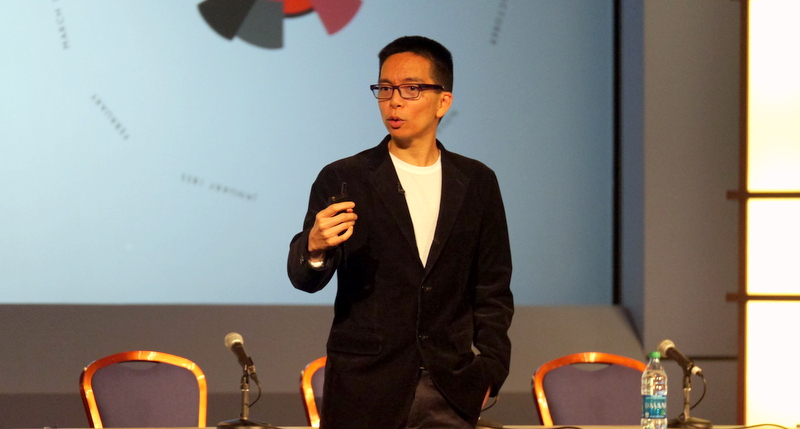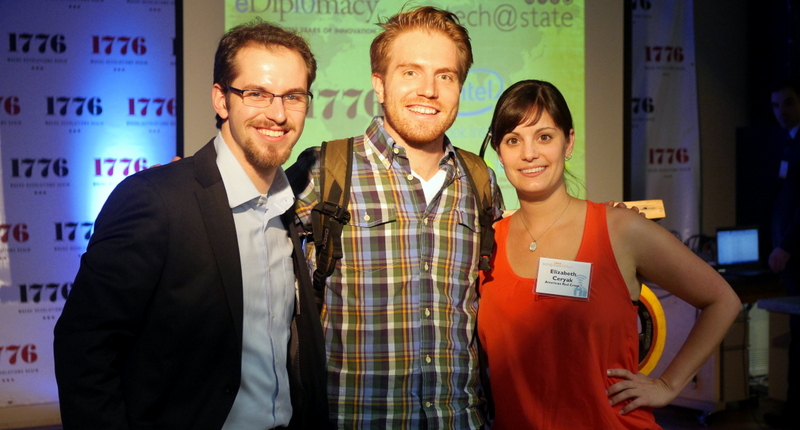On Friday, Nov. 1, TechChange was honored to participate in a panel at the latest Tech@State conference on education technology, as well as sponsor the informal reception afterwards to celebrate ten years of e-diplomacy. We wanted to share a few thoughts below of the day to continue the conversation online!
1) There is a gap between a classroom and MOOC
Throughout the panel on “Using MOOCs in a Global Context”, the distinction between online education and MOOCs came up repeatedly. MOOCs are a form of online education, but not the only form. And that’s problematic because educators are feeling like they are stuck with a binary choice. However, there are alternatives that we’ve been exploring that allow highly interactive small-group forums. Taylor Corbett (@data4d) of OpenEMIS gave a short ignite talk during the session, and part of us wondered what it would be like if you could instantly go back and watch the talk afterwards or click around content while he spoke, or ask him questions directly in a conversational manner — just as students were able to do in our Mobiles for International Development course when Taylor spoke there only a few weeks ago.
2) Instructional design will be as important as educational content
A recurring theme throughout the day was the increasing significance of design. John Maeda nailed it during a talk that included elements of his previous TED Talk on How Art, Technology, and Design Inform Creative Leaders. We’ve written previously on how content will be vital for online education, similar to what’s happening with Netflix for online video, but what came across was that design will be at a premium for not just what gets included, but how. This is literally a matter of life and death, as Maeda pointed out that Florence Nightingale saved lives of soldiers not with nursing, but with statistics and a clever visualization that influenced decision makers to look at thousands of soldiers dying needlessly in hospitals. We’ve tried to think critically about design in our own work — getting the most information into as few seconds of student experience as possible, such as our logo animation redesign.
3) You can’t network over a beer in online education
One of our course facilitators, Graham Lampa (@grahamlampa) brought up an excellent point in our MOOC panel, which is that the informal qualities of education and in-person experiences can be as valuable as the formal knowledge transfer. Until you can virtually “grab a beer” with someone, online education will not be able to replace the informal qualities. However, there are ways to leverage both! We sponsored the happy hour at 1776, where they had tweets from the day on #edip10 and #techatstate displayed on large monitors (courtesy of Zoomph), so that the walls were removed between offline and online content.
Moreover, we had a great time seeing everybody from our classes who we had the pleasure of meeting in person, including our Alumni Beth Ceryak (@bethceryak), Matt, and more!
Did you attend the 2013 Tech@State conference and come away with any other conclusions? Feel free to post your comment below and/or share your thoughts using the hashtags, #techatstate and #edip10.



